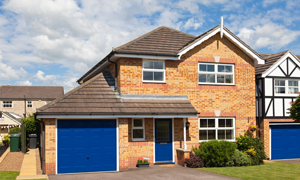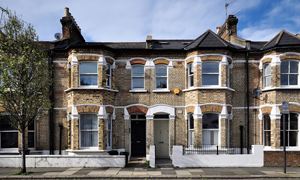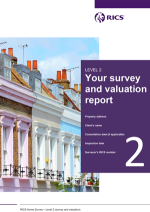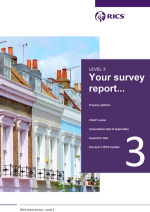What Is The Difference Between Level 2 and Level 3 Survey?





When buying something as expensive and complex as a home, you want a professional to inspect the property's structure, assess the property's condition, and tell you if there's anything you should be worried about. Getting the right level of survey is essential for homebuyers because it can be very costly if you miss a defect.
Buyers in the UK who did not get a survey faced an average of £5,750 worth of unexpected repairs after moving in. Furthermore, 17% of these buyers ended up paying over £12,000 to make their homes habitable.
Source: Royal Institution of Chartered Surveyors (RICS)
The issue is that there is more than one level of survey, and choosing between them becomes a problem when one costs more than the other. Both surveys, though, should be carried out by a qualified RICS surveyor.
The cheapest of the two is the RICS Home Survey Level 2 (Previously Homebuyers Report). It can include a homebuyers valuation with a reinstatement cost and is suitable for modern, standard homes. The RICS Home Survey Level 3 (Previously Building Survey, Full Structural Survey) is comprehensive investigation and is more expensive than level 2; suitable for older, larger, and non-standard homes.
This article will explain the difference between level 2 and level 3 home surveys from RICS, and which is the right choice for your property.
I'm Charlotte, and in 2025, I personally helped 262 clients choose the right RICS home survey for the property they were buying. When you call, I'll review the property with you, discuss your plans, and then explain which survey best suits your property.
There's no obligation to instruct, so feel free to call me direct on 0333 344 3234 (local rate), or drop me an email at charlotte@samconveyancing.co.uk. I'm free 9am to 5pm Monday to Friday, and I'll reply to all calls/emails on the same day.
Charlotte Bolding, SAM's Survey Department since 2023

What Does a Level 2 Home Survey Cover?
A Level 2 Building Survey, or RICS Level 2 Home Survey, is a detailed report on the condition of a conventional property based on a physical inspection of the inside and outside of the building.
- Describes the construction and condition of the property on the date of the inspection
- Problems that need urgent attention or are serious or may be dangerous
- Things that need to be investigated further to prevent serious damage
- Potential issues and defects
- Whether you need extra advice before committing to purchase
- Amount of ongoing maintenance required in the future & budget for any repairs or restoration
- Market valuation and reinstatement cost to help you avoid under- or over-insurance
- Broadband speed and mobile data
- Noise from traffic and aircraft
- Secured panels, electrical fittings, inspection chamber covers and other similar features are not removed
Suitability
It suits modern properties made from conventional building materials and construction methods. If the building is older, more unusual or in poorer condition, you will need a level 3 survey instead.
Limitations
A level 2 survey involves a non-intrusive inspection, so the surveyor will not lift fixed floors or drill into walls, but they will advise on any visual defects as well as visual signs of potential defects which may need further investigation. Less time is allowed for level 2 than level 3, so if the property is bigger or has many defects to inspect, the surveyor will run out of time to inspect everything thoroughly.
What Does a Level 3 Building Survey Cover?
A Level 3 building survey, now called a RICS Level 3 Home Survey, is a more detailed and comprehensive report based on a physical inspection of the inside and outside of the building.
- Construction and condition of the property on the date of the inspection
- How the property is built, what materials are used and how these will perform in the future
- Budget for any repairs or restoration, ongoing maintenance, repair timeline, & the consequences of not acting
- Problems that need urgent attention or are serious or may be dangerous
- Visible defects, plus potential problems posed by hidden defects
- Things that need to be investigated further to prevent serious damage
- Whether you need extra advice before committing to purchase
- Broadband speed and mobile data
- Noise from traffic and aircraft
- Accessible panels, electrical fittings, and inspection chamber covers will be inspected where it is safe to do so
- More consideration (than Level 2) for Roof space, underground drainage, grounds, floors and services
Suitability
A level 3 survey is suitable for properties over 50 years old, listed buildings, those which are unusually constructed, in poor condition, or which you intend to renovate in a way which will alter the fabric of the building.
Limitations
A level 3 survey involves a non-intrusive inspection, so the surveyor will not lift fixed floors or drill into walls, but they will advise on any visual defects as well as visual signs of potential defects which may need further investigation. A level 3 survey doesn't typically include a valuation. If you require an independent valuation, we can arrange this in addition.
Check to see which house is like the one you are buying, and see which home survey suits it.
Who arranges a HomeBuyers Report or Full Structural Survey?
Typically, it's the buyer who arranges and pays for the home survey.
When should I get my survey?
Whether you opt for level 2 or level three, the best time to order your survey is when your offer has been accepted, or after you've received draft contracts.
Level 3 surveys don't include a current market valuation or reinstatement value. So, although they are more comprehensive regarding the property inspection, if you require a valuation, you will need to arrange this separately.
Cost difference between Level 2 and level 3 survey in 2026
Aside from the breadth of the inspection, the main difference between level 2 and level 3 surveys is their cost. While level 2 vs level 3 survey costs vary by property and location, a level 2 survey will cost in the range of £400 - £1000. A level 3 survey cost will range from £500 - £1,500.
Remember that if you're booking a level 3 survey, you may also need to book a valuation. These can be added to the cost of your survey. Ask your SAM Conveyancing executive to arrange it for you.
Home survey level 2 vs level 3 survey
The Royal Institution for Chartered Surveyors (RICS), which regulates member surveyors, explains the difference between the Level 2 and Level 3 survey:
RICS Level 2 Home Survey Known as the HomeBuyer Survey | RICS Level 3 Home Survey Known as a full structural survey, or building survey |
"This level of service is for clients who are seeking a professional opinion at an economic price. It is, therefore, necessarily less comprehensive than a survey level three service. The focus is on assessing the general condition of the main elements of a property. The inspection is not exhaustive, and no tests are undertaken. Concealed areas normally opened or used by the occupiers are inspected if it is safe to do so (typical examples include roof spaces and cellar areas). There is, therefore, a risk that certain defects may not be found that would have been uncovered if a more substantial inspection had been undertaken" | "This level of service is for clients who are seeking a professional opinion based on a detailed assessment of the property. Therefore, the inspection is more extensive than for levels one and two, and the surveyor will spend considerably longer at the property." |
Should I get a RICS Level 2 or Level 3 survey?
For most modern properties of standard construction, you should get a level 2 survey. If you are purchasing an older or unusual property or one which has been extended or developed, you should get a level 3 survey.
If you're unsure, get in touch and a team member will call you back to talk you through the decision, free of charge.
You may think it is always simpler to book a Building Survey and leave no stone unturned. However, many properties don't need the level of detail found in this survey, so the more affordable HomeBuyers Survey is better suited.
The cost difference between the two surveys can be considerable, so you shouldn't pay more to find out more when there is no further detail to provide. We'll help you choose the best option, and we never upsell a more expensive service if it's not adding any value to you.
In our recent survey, 16% of homeowners found defects; including 2% who were able to pull out of a bad purchase, 7% who were able to negotiate a better price, and sadly, 7% of homeowners who did not get a survey and discovered defects after the purchase.
12 of the 39 who remembered how much these defects cost to remedy spent over £5,000
Don't burn your money, book a survey.

In 2026 Level 2 Home Surveys will make up to 73% of Surveys
According to our data from 2025, we are estimating that Level 2 Home Surveys will make up 73% of the total home surveys booked through SAm Conveyancing. The reason for this is the volume of first-time buyers entering the market who will be buying properties that are built after the 1920, and that will be of the size and value that suits a Level 2 home survey.
Caragh is an excellent writer and copy editor of books, news articles and editorials. She has written extensively for SAM for a variety of conveyancing, survey, property law and mortgage-related articles.
Andrew started his career in 2000 working within conveyancing solicitor firms and grew hands-on knowledge of a wide variety of conveyancing challenges and solutions. After helping in excess of 50,000 clients in his career, he uses all this experience within his article writing for SAM, mainstream media and his self published book How to Buy a House Without Killing Anyone.












